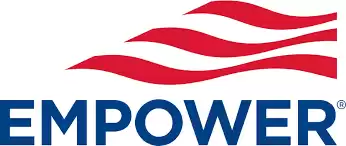Want to Make Extra Money Now?
|
How much money is enough to achieve financial independence?
What would you do if there was a never-ending stream of money available?
The answer is unique to everyone, from buying a house to getting out of debt.
To me, it's about having the assets available to cover all my current and future expenses, from basic necessities to one-off luxuries that make life that much sweeter.
Traditionally, financial independence could be thought of retirement. The golden years where you can potter around the garden and make rhubarb crumble while receiving a paycheck every month as compensation for spending your life working.
More recently, there seems to be a movement towards “early retirement“. Millennials, especially, are demanding more out of life than just work. In most Western societies, the norm of working 9-5 for most of your life with the lure of a pension at the end of it (when it is eventually given to you – for example, in the UK, the state pension age is rising!), just isn’t enough anymore.
In his book The 4-Hour Work Week, Tim Ferriss suggests the concept of a “mini-retirement”. It entails relocating to a new place for a couple of months before heading back home, allowing a conscious break from routines and habits. However, having a “mini-retirement” requires knowing what you want to get out of it.
How Much Money Do You Need?

“A goal is a dream with a deadline”
– Napoleon Hill
Leaving money aside, what do you want out of life?
Many people don't know what they want. The classic ‘what would you do if you won the lottery' question may give answers like going on holiday, paying off a mortgage, or buying an island. But when every day is totally up to you and your desires, how will you spend all that time? How much money is enough to be happy? Does the real question become how much money is enough to live on?
One way of discovering this is thinking about what you want out of life. Instead of a slightly morbid Bucket List, a friend of mine calls it a Life List. It includes everything she would like to achieve, do, experience, make, sees, in her life. It is surprising how much you can want out of life! And, once written down, it suddenly becomes real and allows the beginnings of a plan to emerge on how to complete these dreams.
Indeed, having this vision on where you want to end up allows it to transform from a dream into a goal. Saving 10% of your income, saying no to going out every weekend, not having the latest phone – it all becomes that bit easier if you have something to aim for.
How Much Money Is Enough?

I like to think there are two main interpretations of financial independence:
- Being able to cover all your necessary expenses without having to actively work
- Being able to live a life of absolute abundance
Putting real figures on what you want to achieve from life helps them become even stronger goals. Let's assume that in your wildest dreams, you want to own a chalet in the Alps in Italy. How much is needed to buy one? Can this figure be factored into your financial plans?
Once the numbers have been put into place, the countdown to completion starts! Automating finances is a great way to make consistent steps towards savings goals (and any step, no matter how small, is an achievement). Keeping track of where the money goes can highlight areas in life where money can be saved, or even increased. But is that enough to reach financial freedom?
How Do I Achieve Financial Freedom?
Do you want to achieve financial freedom? Too many people fail to reach that goal. But if I can help you get going with smart habits that help pave the way towards financial freedom, my job here is done.
You’ve probably been told hundreds of times in your life that you need to be very careful with your budget and start saving.
It’s true – you should be engaged in saving money. But the money you save isn’t going to lead you to financial freedom.
While it’s a good idea to keep a nest egg, you’re going to need to explore other financial pursuits if your goal is to maximize your finances and live comfortably.
The Trouble with Relying on Savings
If you find yourself in an emergency situation, you’re going to be very thankful that you have some emergency savings.
Having some money put away removes a lot of the stress and panic from a major roof leak during a storm or a major vehicle malfunction.
But once you spend savings, they’re gone. They don’t regenerate themselves. Even with a high yield savings account, what you amass won’t be enough to buy a private island.
It’s true that you sometimes have to spend money to make money. A combination of spending less and making more is what will help you advance your financial goals.
Keep the savings for when you really need them, and make more money for the sake of growth.
Achieving financial freedom is a goal for most people. Yet, too many of them fail to reach that goal. The following are 4 habits that help pave the way.
1. A Strict Budget
You might actually have the means to accomplish the financial goals you want to accomplish, but you’ll never know it if you aren’t keeping track of your spending habits.
If you’re trying to save up for a new car and the money never seems like it’s there, you need to be sure you aren’t flushing it all away on takeout and bar tabs.
A budget needs to be used in conjunction with any financial growth effort you undertake. Without it, you won’t be able to accurately measure your progress or make projections based on the increase in your income.
Your budget should include how much you tend to save, invest, or use for ventures. You might need a little capital to get more capital.
2. Side Income
More work means more money. You may not have time to pick up another job, but a flexible side hustle might be workable.
There are several ways to generate additional income streams, and it all depends on the amount of time and level of involvement you would prefer. If you’re able to, try to combine several streams of side income to increase your results.
You can make excellent side income on the internet. Blogs have the potential to be a decent source of side income, and there are two ways to approach moneymaking. You can either create a valuable ad-supported blog that caters to a particular niche, or you can learn affiliate marketing and use your blog to showcase products or services that offer a commission on sales.
If you’d rather not run a blog, you can still make money online. If you have any freelance skills, it’s relatively easy to work small gigs for some side cash. Some people freelance online as a full-time job. If your time is already spoken for, you can freelance whenever you have an hour or two to devoted to a project. You can set your own rates and choose the type of work you want to do.
As far as passive income streams go, there’s always an app-based car or food delivery services. If you don’t want to take a hands-on approach, you can make money in the sharing economy by renting out things you don’t use, including empty space in your home or garage. It’s relatively low maintenance – all you have to do is make sure someone’s stuff is safely kept.
3. Trading and Investing
You can multiply the money you already have by trading and investing. The internet has made it incredibly easy for people to trade or invest in companies of all sizes.
A lot of helpful articles will teach you to trade, and if you do enough research about a company you want to get involved with, it becomes easier to make wise decisions.
Pick a few investments that look interesting and relatively low risk, watch them for growth over a period of a few months, and invest what you can invest.
Putting your money into a wise investment and slowly watching it grow will net you much more money than you would see in a savings account.
All you need to do is periodically check on your investments. If you’re underwhelmed by the results, change things up.
Cash out whenever you want to.
4. Investing In Personal Ventures
Many people become independently wealthy by investing in their personal ventures. They start businesses in fields that have always interested them. They purchase and refurbish properties, either to rent or to sell.
They buy land because it’s a limited resource that can resell for a higher amount. They put their money where their mouth is, and they become their own bosses.
They start from the position of CEO, and sometimes invite other people to work beneath them. If you’ve always been passionate about starting a business, go for it. Other people seeking financial freedom may become your investors, and everyone wins.
No matter what method or combination of methods you use, financial freedom is going to take you a while. Get rich quick schemes are all too good to be true, and you need to be willing to explore and take some risks in order to see the reward you want. Determination and willpower are the two most important tools in achieving your financial goals.
It's Up To You How Much Money is Enough
So what does financial independence mean to you? With the right mindset and goals, we can use both fear (to push away from working until you drop) and joy (the pull of doing what you want when you want) to become financially free.
Money gives you the options and choices but real freedom comes from truly living your life to the full.
If you really want to learn more about financial independence and how much money is enough to be happy, I would recommend looking into the top 8 personal finance books that money can buy.
I hope I answered your question of, “how much money is enough to achieve financial independence“.
Best Apps to Help You Save
|
|
|
- Free budgeting tools
- Retirement planner
- Free portfolio advice
- Robo plus human advisors
- Automatically invests spare change
- $20 new user bonus
- Cash back at select retailers
- Get control over your subscriptions
- Stay on top of your spending
- Put your savings on autopilot











